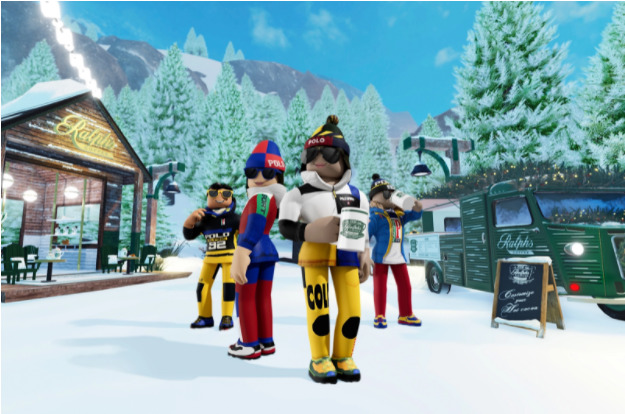Fashion in the Metaverse: What will it look like?
Feb 15, 2022
Influencer News

The Metaverse is well and truly on its way. Although the ultimate version is still a work-in-progress, we have begun to see metaverse platforms begin offering brands of all industries the opportunities to create exceptional digital experiences. One industry in particular has taken the exciting digital innovations and opportunities in its stride: the fashion industry.
The backbone of fashion is expression and creativity. The limitless possibilities of the metaverse means fashion brands and consumers can express themselves in ways they never thought possible. While this does mean digital avatars of consumers could involve scales, wings, colourful skins and even different species, it also means these avatars can be dressed in anything—from a basic t-shirt and jeans combo to an extravagant, digitally-enhanced flowing gown.
Given these exciting developments, we wonder what the future of fashion in the metaverse looks like.
Digital fashion
Digital fashion, while not an entirely new concept, is still in its infancy. London Fashion Week only recently unveiled its first ever purely digital ready-to-wear line from Auroboros—a fashion house that merges science and technology with physical couture in a digital form. In addition, brands have been creating digital versions of popular items for video games and social media avatars (think the Snapchat Bitmoji) for years.

Digital clothing has been a key commerce trend for fashion brands in recent years. Considering Gucci sold a virtual bag for $4,000 on Roblox last year, it’s clear there’s a rising demand for digital items. With social media platforms developing their NFT creating and purchasing capabilities, it’s only a matter of time before we see social media avatars dressed in personal NFT digital garments—think of the Meta wardrobe possibilities.

Virtual fashion shows
The opportunities for fashion within the metaverse go beyond creating digital garments, skins and avatars. As metaverse platforms continue to expand, the opportunity for in-verse experiences rises. Example: the Metaverse Fashion Week.
Metaverse platform Decentraland will be hosting its first Metaverse Fashion Week (MVFW), starting 24th March for four days. The event will see dozens of brands and thousands of visitors virtually experience fashion shows, attend live music sessions at branded after parties, and buy and wear digital clothing directly from catwalk avatars.
With virtual showrooms, stores, panels, talks, and events, it’s set to be an extravagant affair. HUGO (from the newly rebranded HUGO BOSS), has partnered with Boson Protocol to enable visitors to buy physical HUGO products within the metaverse.
At the event, virtual avatars will be walking the runways in shoppable and wearable items. This means that attendees will be able to wear digital items within Decentraland—and some of the items will have a physical twin. This poses the opportunity for the practical use of NFTs.
A visitor could buy a digital item via an NFT and wear it immediately on their avatar. Then, they can choose to sell the item or redeem the NFT to receive the physical version.
Virtual brand spaces
Following on from virtual fashion shows, fashion brands can purchase their own digital plots of land within metaverse platforms to have a permanent digital brand experience. Fashion brands can purchase and develop digital land from platforms such as Decentraland or The Sandbox to provide exciting experiences for younger audiences.

Gucci has recently purchased digital real estate within The Sandbox to expand on its metaverse presence for its Gen Z-focused platform Gucci Vault. The collaboration will create a fashion experience based on Gucci Vault, described as an experimental space to house future metaverse projects.
Having a permanent virtual space will be an investment for fashion brands. Virtual visitors can come and go as they please, purchase NFTs or digital items, and experience the brand in a new way.
AR fashion shows
While we’ve covered the potential for metaverse fashion shows, there is also the possibility of AR fashion shows. Although the technology isn’t quite there yet, it is possible that in-person fashion shows could have a virtual twist.

At in-person shows, attendees could also experience a digital catwalk by using AR technology. In between physical catwalk models, the space could be filled with a virtual model displaying a digital RTW item. Attendees could purchase this item, and wear it virtually or redeem an NFT to receive the real life version.
Our Influencer marketing agency and Social agency are located worldwide, with our agency network based in the USA, UK, UAE and China.
If you want to receive our industry insights, visit our Influencer Marketing & Social Media blog.
@ Socially Powerful
[cta]
Popular Blogs
Most Popular Instagram Hashtags | Tiktok Hashtags | Instagram Monetization | Facebook Banner Size | Snapchat Influencers | Most Subscribed Youtubers | Best Time to Post on Youtube | UK Twitch Streamers | Female Twitch Streamers | Popular Tiktok Songs | Male Tiktok Influencers | Lgbtq Tiktok Influencers | The Rise and Fall of Clubhouse | Influencer Marketing on Clubhouse | LiketoKnowit | Pretty Little Thing Instagram| Top Social Marketing Agencies
Social And Influencer Marketing News + Insights
Get in touch
We'll show you how to start powerful conversation, drive social engagement, build your brand, hit sales targets or meet other goals you have, wherever you are in the world.
Work with us





